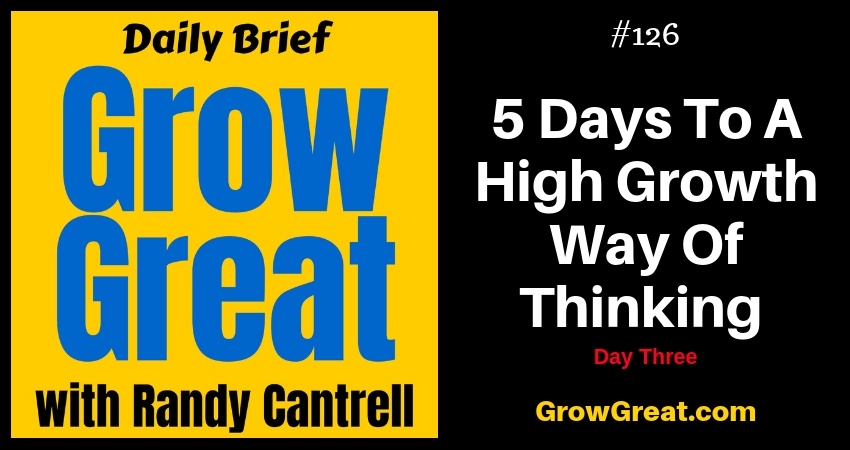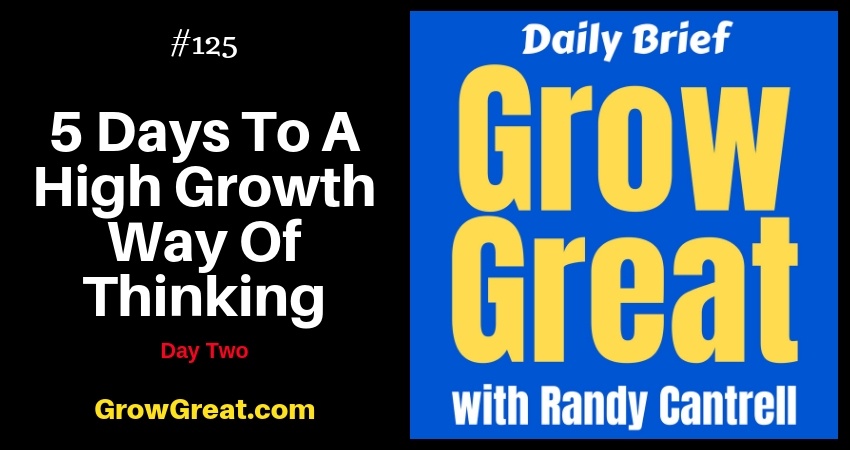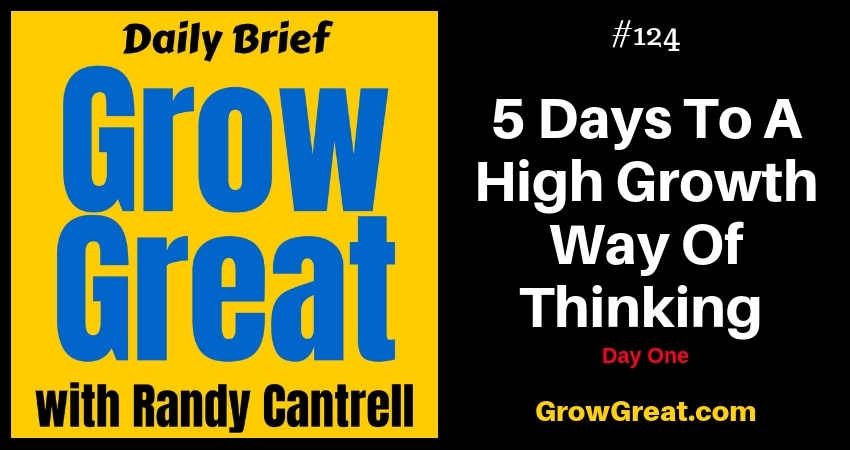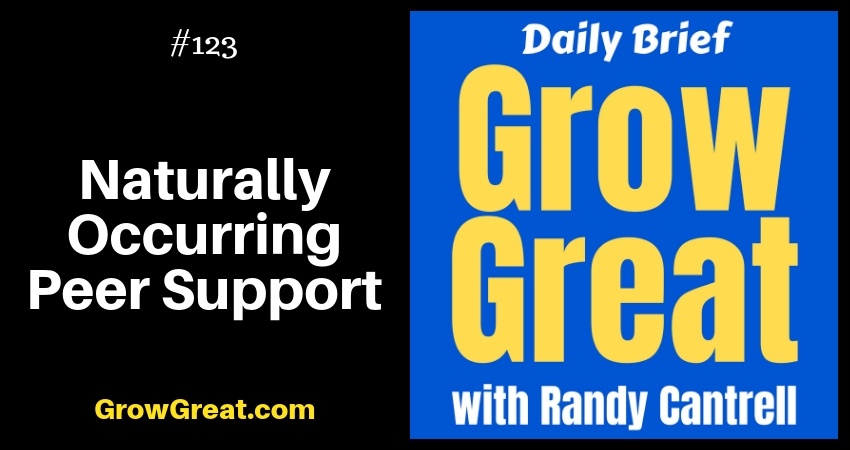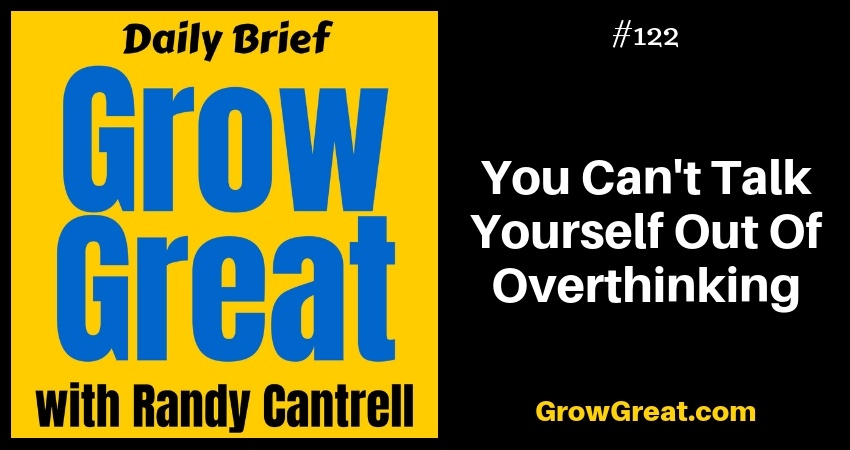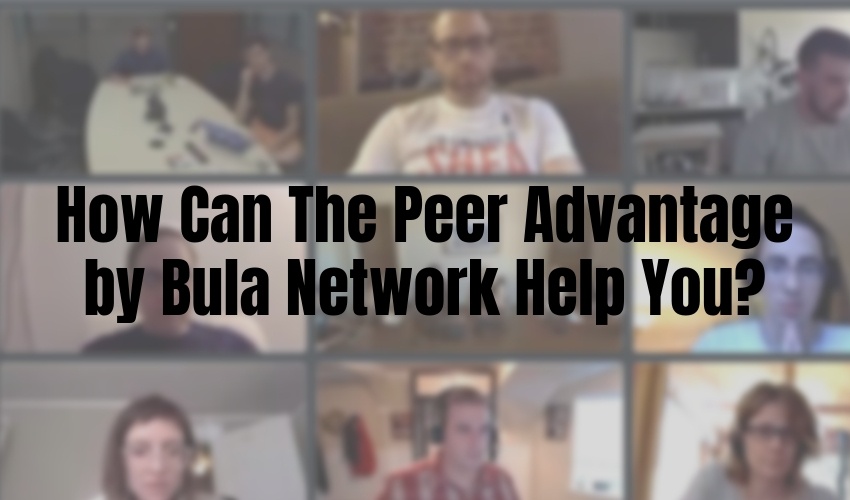5 Days To A High Growth Way Of Thinking: Day Three – Grow Great Daily Brief #126 – December 19, 2018
Podcast: Play in new window | Download (Duration: 8:09 — 8.0MB)
Subscribe: Apple Podcasts | Spotify | RSS | More
Expanding your business. It’s the point. The goal. And it can happen. If you’ve put in the work the last two days, then you’re beginning to more fully understand that YOU are the constraint. Your business growth is largely limited by one roadblock. YOU.
Today, I hope you’ll start seeing the crack in the door to this cavernous room you’ve avoided entering for too long. It’s the grand ballroom with ceilings so high you can barely see and walls so far apart you begin to wonder how many people could comfortably fit into this room. The door is now unlocked and slightly open. Today, we’re going to walk right on in. And when we do we’re going to see there’s quite a crowd in there. With people coming into the room all the time, but the room never seems to fill up. It’s as though as people enter the room the dimensions of the room expand. It’s subtle, but it’s happening.
There is no limit to the abundance.
The room always expands to accommodate the people brave enough to enter. You no longer think the room is off limits to the likes of you and your business. Other than first noticing how many people this room can accommodate, you also notice just how crowded the space is outside the room, where the average people live and work. All these people are uttering the same refrain. They’re all complaining to each other how limited the market is, how bad things are likely to get in the future, how they’re losing business to their competitors. World-class excuse makers exist outside the ballroom of abundance. From the weather to capital, to not being able to find good people – this crowd has figured out every conceivable reason for their failure or lack of BIG success.
Inside the room. Or outside the room.
Both places have limitless space. There’s an abundance in both places. Up to now you may have only thought there was abundance in one of them, the room of limited possibility. Here’s the decision you now must make…
Do you want the abundance of opportunity, possibilities, and success? Or…
Do you want the abundance of company – others who refuse to believe they can achieve more?
Either way, you’re going to achieve abundance!
You get to choose. Stay outside with the ENORMOUS crowd who muddle in mediocrity. Average is defined as typical or common. Boy, isn’t that an exciting goal? That’ll surely rally the troops. “Hey kids! Let’s work hard today to be typical.” There’s a reason the biggest abundance is found smack dab in the middle – average!
Come into the grand ballroom of abundance and join the people committed to a high growth way of thinking.
You need to commit to going into the ballroom. Once you change your mind and begin to question how high you can go – how much you can grow as a person, as a business owner, and as a leader – you’ll become unfit to stay in the herd outside. Their complaining, whining and excuse-making will drive you mad. There’s only one way to get away from them. Go where they’re unwilling to go. Inside.
Turn the knob, open the door and go in.
Average people think there’s more to it. They’re convinced that the folks inside got some special invitation or ticket. I don’t know who they think doles those out, but I guess they think there’s a success fairy or genie.
Fact is, anybody can walk up to the door, turn the knob and just walk right in. It just takes the courage to make up your mind to ditch average.
Once you’re inside – you are inside already, right? – then you have to keep working your way around the room because not every section of the grand ballroom is equal. There just aren’t any walls or doors. Now, it’s even easier to move about, but quite a few folks stand around, stationary. It’s why these occupants experience wide ranges of success. Those who’ve made up their minds they’re never going to stop growing…they’re like sharks. They keep moving. Growing. Improving. Never staying put for fear they’ll get stuck. They move freely about the room from one level of achievement to new ones. But not everybody in the room thinks they can go join another group by going into a different section of the room. They think the room is cliquish.
Your movement is limited only by your mind. Nothing else.
The walls, doors and other imaged barriers exist only in your head, along with all the other demons. Today, I want you to make up your mind to walk into that grand ballroom of abundance. Once you’re inside you’ll figure out the next move. Remember, how is never the question. Who you want to join is always the question.
Today is a pivotal day. Go back and listen to day 1 and 2 again if you must. It’s important that you get yourself to the point where you make the decision to join the group – and enter the space where high growth can happen. Until you do that, you’ll remain stuck in the land of average. And the name of this podcast isn’t Be Mediocre. Or Be Average.
Be well. Do good. Grow great!

